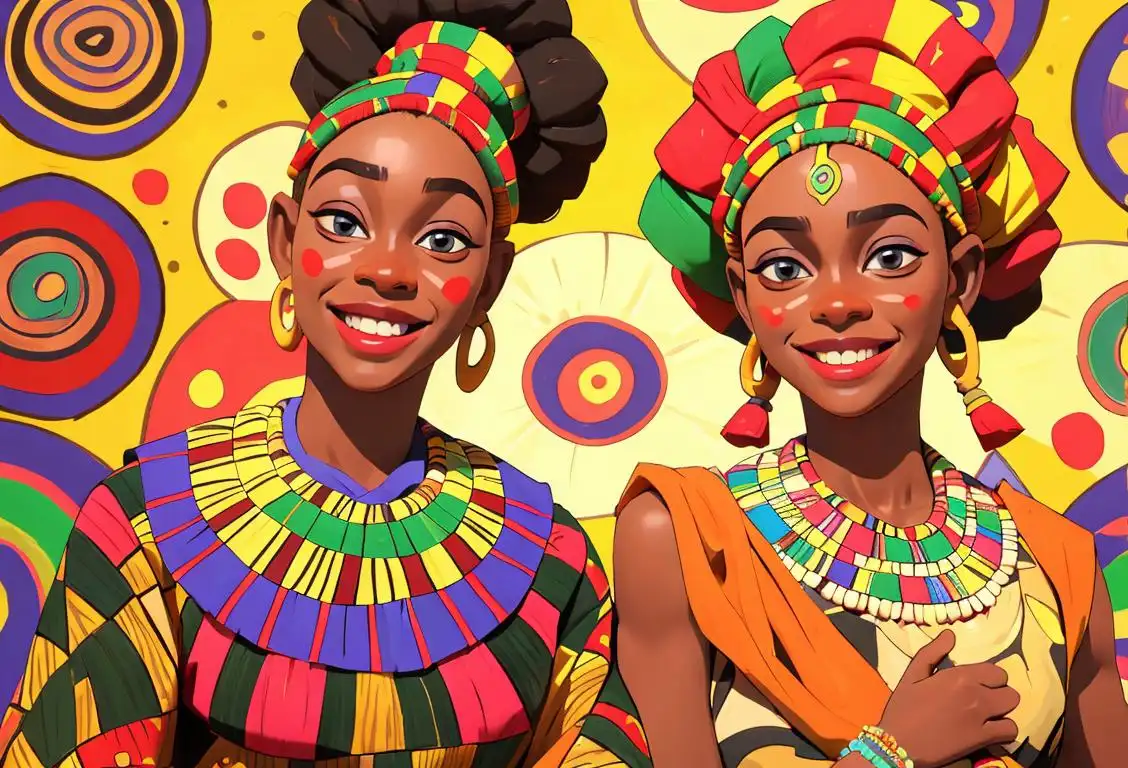National Magazine Day

Are you ready to celebrate National Magazine Day? Grab your reading glasses and get ready to dive into the fascinating world of glossy pages and hidden gems. Whether you're a lover of fashion, current events, or celebrity gossip, magazines are a delightful way to get lost in stories and discover new interests. Let's explore the history and importance of this beloved medium!
When is Magazine Day?
It's national magazine day on the 21st May.
The Birth of Magazines
Magazines have come a long way since their inception. The first magazine, called 'The Gentleman's Magazine,' was published in London in 1731. Picture this: a bunch of well-dressed gentlemen sitting around discussing politics, science, and literature while sipping on tea. The magazine quickly gained popularity and paved the way for a new era of publication.
Over the years, magazines evolved to cover a wide range of topics. From fashion and beauty to sports and travel, there's a magazine out there for everyone's interests. They provide a unique platform for talented writers, photographers, and artists to showcase their work and captivate readers.
The Rise of Digital Magazines
In recent years, the rise of the internet has transformed the magazine industry. Digital magazines have gained momentum, offering readers a convenient way to access their favorite content on the go. With just a few taps, you can flip through the virtual pages of your favorite magazine while sipping your morning coffee.
The digital revolution has also allowed for more interactive and engaging magazine experiences. Remember when magazines were just static images on paper? Now you can watch videos, take quizzes, and even shop directly from the pages of your digital magazine.
Magazines and Pop Culture
Magazines have played an integral role in shaping pop culture. From iconic magazine covers to trendsetting fashion editorials, they have influenced the way we think and perceive the world around us. Who can forget the iconic Vogue covers featuring supermodels like Kate Moss and Naomi Campbell? These images have become timeless symbols of beauty and style.
Magazines are also a treasure trove of knowledge and inspiration. They introduce us to new ideas, teach us new skills, and keep us entertained. Whether you're flipping through the latest issue of National Geographic or browsing a recipe in a food magazine, you're bound to discover something that sparks your curiosity.
History behind the term 'Magazine'
1588
The Beginnings
The term 'magazine' originates from the Arabic word 'makhazin,' meaning storehouse or warehouse. The concept of a magazine initially referred to a place for storing or stockpiling goods, often used by military forces to store ammunition and supplies during campaigns. This sense of the word evolved into a metaphorical meaning, representing a collection of various items of interest.
1731
Early Publications
The term 'magazine' was first used in its modern publishing context in 1731 when a British monthly publication titled 'The Gentleman's Magazine' was launched by Edward Cave. The magazine contained a variety of articles and essays on topics like politics, literature, and current affairs, catering to a wide range of readers. Its success paved the way for the development of other similar periodicals.
1828
Mass Circulation
Magazines gained popularity and larger readerships during the 19th century due to advancements in technology and printing methods. The introduction of steam-powered presses allowed for faster and more efficient production, enabling magazines to be printed and distributed on a larger scale. This mass circulation made magazines more accessible to the general public, further fueling their growth as a cultural medium.
1890
Specialization and Niche Audiences
As the magazine industry continued to expand, publications began focusing on particular interests to attract niche audiences. Specialized magazines catering to specific hobbies, industries, and demographics emerged, providing in-depth coverage on subjects like fashion, sports, science, and more. This shift towards niche content allowed magazines to provide tailored and targeted information to readers, fostering a sense of community and shared interests.
1990s
Digital Revolution
With the advent of the internet, the magazine industry entered a new era. Online publications, e-magazines, and digital platforms emerged, providing instant access to articles, features, and multimedia content. This digital revolution offered unprecedented opportunities for interactivity, multimedia storytelling, and global reach. While the traditional print format remains, digital magazines have revolutionized the way content is consumed, shared, and archived.
Present Day
Diverse and Ever-Evolving
Today, magazines continue to evolve and adapt to the changing media landscape. They offer a wide range of content, from glossy fashion magazines to informative trade publications, and everything in between. Online magazines have become an integral part of the digital media ecosystem, influencing trends and sparking discussions across various platforms. Magazines provide a source of inspiration, knowledge, and entertainment, connecting readers with the world in captivating and innovative ways.
Did you know?
Did you know that the first ever magazine cover featured a portrait of a beautiful lady? It was published on the cover of the French magazine 'La Gazette' in 1672.Tagged
awareness fun fashionFirst identified
21st May 2015Most mentioned on
21st May 2015Total mentions
9Other days
Tayler Day
Pantsuit Day
Corduroy Appreciation Day
Nail Polish Day
Croc Day
Dashiki Day
Two Different Colored Shoes Day
Hat Day
Bow Tie Day
Secondhand Wardrobe Day









